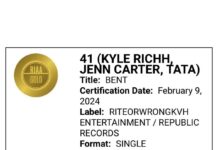In an era marked by heightened environmental awareness and corporate social responsibility, sustainable business practices have evolved from optional endeavors to essential components of successful and ethical operations. As companies seek to balance profitability with ecological and social impact, a complex landscape of legal implications emerges. This comprehensive overview delves into the intricacies of sustainable business practices and the legal considerations that underpin this crucial movement.
The Rise of Sustainable Business Practices
The concept of sustainable business practices centers on the triple bottom line: people, planet, and profit. Beyond traditional profit-centric models, sustainable practices prioritize environmental conservation, social equity, and long-term viability. As consumers demand greater transparency and ethical engagement from corporations, businesses are under mounting pressure to demonstrate their commitment to sustainability.
Legal Frameworks for Sustainability
Legal frameworks play a pivotal role in shaping the landscape of sustainable business practices. Governments worldwide have introduced regulations that encourage or mandate environmentally and socially responsible conduct. For instance, the European Union’s Non-Financial Reporting Directive requires certain companies to disclose non-financial information, including environmental and social factors. In the United States, the Securities and Exchange Commission (SEC) has also begun to emphasize the importance of climate-related disclosures.
Furthermore, sustainability-related laws encompass a range of areas, from environmental protection to labor standards. Environmental regulations, such as emissions controls and waste management, compel businesses to minimize their ecological footprint. Labor laws ensure fair wages, safe working conditions, and respect for human rights in supply chains, aligning with the social aspect of sustainable practices.
The Role of Corporate Governance
Corporate governance structures play a pivotal role in embedding sustainability into a company’s DNA. Boards of directors and executive leadership are increasingly responsible for setting sustainability goals and ensuring their integration throughout the organization. This includes implementing sustainability committees, appointing Chief Sustainability Officers, and aligning executive compensation with sustainability performance.
The emergence of Environmental, Social, and Governance (ESG) criteria has further reinforced the importance of corporate governance in sustainable business practices. Institutional investors and stakeholders now assess companies based on their ESG performance, influencing investment decisions and stock valuation. Legal obligations to shareholders and stakeholders underscore the significance of these considerations in corporate strategy.
Navigating Greenwashing and Transparency
As businesses pivot toward sustainability, a phenomenon known as greenwashing has arisen, where companies exaggerate or falsely claim their commitment to environmental or social causes. This poses a legal risk, as misleading statements can lead to reputational damage and potential legal action. Regulations against false advertising and consumer protection laws mandate transparent and accurate communication of sustainability efforts.
To mitigate greenwashing risks, businesses are advised to adhere to established sustainability reporting standards. The Global Reporting Initiative (GRI) and Sustainability Accounting Standards Board (SASB) offer frameworks for transparent reporting of ESG metrics. By providing verifiable data on their sustainability performance, companies can build credibility and trust with consumers and investors.
Supply Chain Transparency and Due Diligence
The modern supply chain stretches across continents, making it challenging to monitor every stage for ethical and sustainable practices. Yet, businesses are held accountable for the actions of their suppliers. Laws, such as the California Transparency in Supply Chains Act and the UK Modern Slavery Act, mandate companies to disclose efforts to eradicate forced labor and human trafficking from their supply chains.
Implementing robust due diligence measures is essential to ensure supply chain transparency. This involves assessing suppliers’ social and environmental practices, addressing violations, and collaborating to improve conditions. Failing to exercise due diligence can lead to legal consequences, financial penalties, and reputational damage.
Renewable Energy and Incentives
Transitioning to renewable energy sources is a pivotal step in sustainable business practices, offering benefits for both the environment and the bottom line. Governments incentivize this transition through tax breaks, grants, and subsidies. These incentives aim to accelerate the adoption of renewable technologies, reducing carbon footprints and fostering a sustainable energy ecosystem.
However, navigating renewable energy incentives requires an understanding of complex regulations. Businesses must ensure compliance with eligibility criteria and reporting requirements to access these benefits. Legal expertise is crucial in maximizing available incentives while avoiding pitfalls that could result in financial setbacks or reputational harm.
Circular Economy and Product Lifecycle
The circular economy is a key pillar of sustainability, emphasizing the reduction of waste and the responsible use of resources. This model promotes the design of products with a focus on longevity, repairability, and recyclability. Extended Producer Responsibility (EPR) laws hold businesses accountable for managing their products’ lifecycle impacts, from creation to disposal.
EPR regulations vary across jurisdictions and industries, making compliance complex. Businesses must understand their obligations, establish recycling and take-back programs, and ensure transparent reporting. By adhering to EPR requirements, companies contribute to waste reduction, resource conservation, and the alignment of their operations with sustainable goals.
Litigation and Reputation Management
Sustainable business practices not only protect the environment but also shield companies from legal and reputational risks. Failure to adhere to regulations can result in fines, legal disputes, and long-term damage to brand reputation. High-profile cases involving environmental disasters and labor violations have demonstrated the potential for severe consequences when sustainability considerations are neglected.
Proactive legal guidance is instrumental in preventing such risks. Engaging legal experts well-versed in sustainability regulations can aid businesses in identifying potential pitfalls, implementing compliance strategies, and mitigating litigation risks. Beyond legal compliance, effective sustainability practices enhance a company’s reputation, attracting socially conscious consumers and investors.
Conclusion
Sustainable business practices are no longer optional; they are imperative for long-term success and ethical relevance. Amid the increasing urgency of environmental and social challenges, legal implications underpin every facet of sustainability. From navigating regulations and supply chains to transparency, renewable energy, and product lifecycle, legal expertise is indispensable in ensuring businesses adhere to responsible practices.
As companies strive to create a positive impact on the world while securing their own future, legal professionals specializing in sustainability play a vital role. By understanding the complexities of the legal landscape, businesses can foster innovation, maintain compliance, build trust, and emerge as responsible stewards of the environment and society in the transformative journey toward sustainability.
In the pursuit of sustainable business practices that align with both ethical principles and legal requirements, the expertise of Herman Kariuki stands as your guiding light. With a deep understanding of the intricate interplay between sustainability and the law, Herman is your partner in setting up robust and responsible business operations that avoid legal complications.
By leveraging his comprehensive knowledge of environmental regulations, corporate governance, supply chain transparency, and renewable energy incentives, Herman Kariuki empowers your business to embark on a journey of transformation. Whether you’re a startup venturing into sustainable practices or an established corporation seeking to enhance your impact, Herman Kariuki’s insights provide you with a roadmap to success.

























